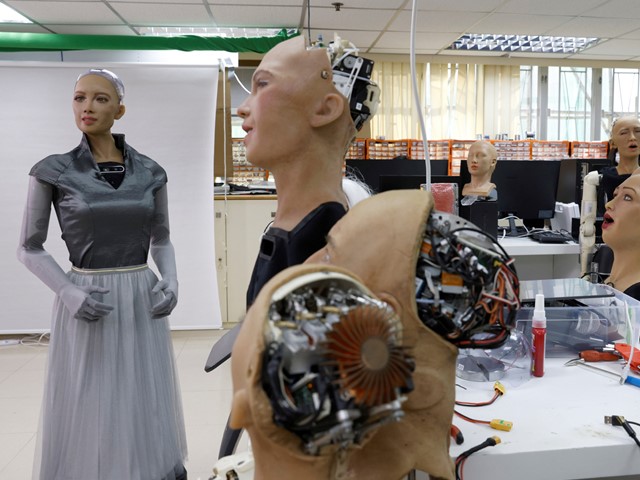In 2016, Hong Kong-based robotics company Hanson Robotics first unveiled Sophia, a humanoid robot. The robot soon became an internet sensation as it went viral after unveiling. Hanson Robotics is now planning to commence mass production of the robots before the end of the year.
The Hong Kong-based company hinted that plans are in top gear to release four models, including Sophia. These models would start rolling out of factories in the first half of 2021. This news is coming as researchers predict the pandemic will open new opportunities for the robotics industry.
“The world of COVID-19 is going to need more and more automation to keep people safe,” founder and chief executive of Handon Robotics, David Hanson said. We ghve seen robots deployed in the healthcare and delivery industry but Hanson CEO holds the believe that robotic solutions to the pandemic are not limited to healthcare but could assist customers in industries such as retail and airlines too.
“Sophia and Hanson robots are unique by being so human-like,” he added. “That can be so useful during these times where people are terribly lonely and socially isolated.” He rolled out plans to sell “thousands” of robots in 2021, both large and small” but failed to disclose the specufuc number the company us targeting.
Social robotics professor Johan Hoorn, whose research has included work with Sophia, said that although the technology is still in relative infancy, the pandemic could accelerate a relationship between humans and robots.

Hanson Robotics is also planning to launch a robot this year developed for the healthcare sector and called Grace.
Products from other big players in the industry are helping fight the pandemic as well. SoftBank Robotics’ Pepper robot was deployed to detect people who weren’t wearing masks. In China, robotics company CloudMinds helped set up a robot-run field hospital during the coronavirus outbreak in Wuhan.
The use of robots was on the rise before the pandemic. According to a report by the International Federation of Robotics, worldwide sales of professional-service robots had already jumped 32% to $11.2 billion between 2018 and 2019.
- Amazon’s Zoox fully autonomous, all-electric Robotaxi unveiled
- Hyundai Motor to buy a controlling stake in U.S robotics firm Boston Dynamics
- Roborock S7 Robot Vacuum goes official with 2500Pa suction, and Sonic mopping for $649
(source)







